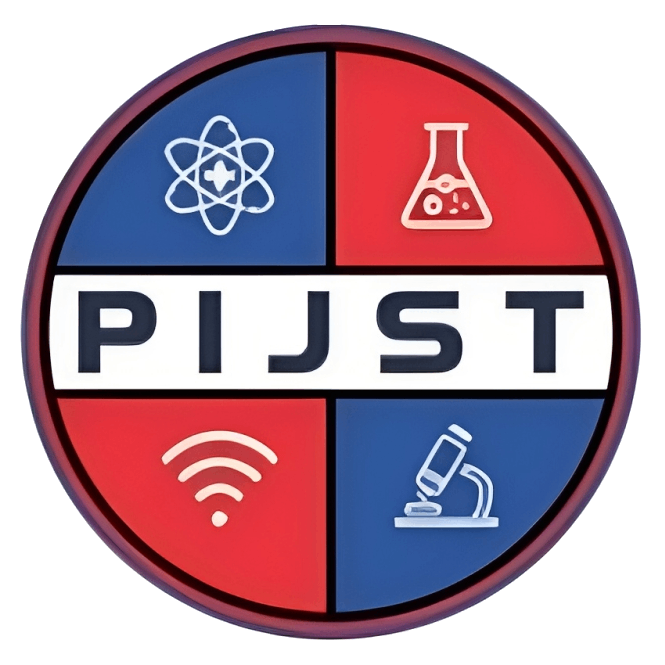Dr. Sandhya Srivastava, Assistant Professor, Department of Chemistry, DAV Degree College, Kanpur.
 DOI: 10.62796/pijst.2025v2i7001
DOI: 10.62796/pijst.2025v2i7001
 DOI URL: https://doi.org/10.62796/pijst.2025v2i7001
DOI URL: https://doi.org/10.62796/pijst.2025v2i7001
Published Date: 02-07-2025 Issue: Vol. 2 No. 7 (2025): July 2025 Published Paper PDF: Download Introductory Paragraph- Green chemistry emphasizes the design of chemical products and processes that minimize environmental impact by adhering to the 12 guiding principles of sustainability. Within this framework, artificial intelligence (AI) has emerged as a transformative tool to optimize eco-friendly synthesis routes. Traditional synthetic methodologies often rely on hazardous reagents, energy-intensive conditions, and wasteful trial-and-error processes. By contrast, AI leverages machine learning models—supervised, unsupervised, and reinforcement learning—to analyze extensive chemical databases and experimental data, enabling predictive insights into reaction outcomes, catalyst selection, and retrosynthetic planning. Tools such as SynRoute and computer assisted synthesis design (CASD) exemplify how AI can generate viable synthetic routes in seconds, offering chemists diverse options for environmentally benign transformations. Applications extend to pharmaceutical synthesis, bile acid derivatives, and green catalysis, where renewable solvents and sustainable catalysts enhance both efficiency and safety. Case studies highlight AI’s role in optimizing multistep syntheses and identifying reaction conditions with high yields and minimal by-products. Despite remarkable potential, challenges persist, including poor data quality, incomplete reaction records, and algorithmic limitations in predicting reactivity and selectivity. Furthermore, ethical considerations demand transparency, fairness, and adherence to regulatory frameworks governing chemical processes. Future directions envision integration with technologies such as flow chemistry and automation, enabling real-time adaptive optimization while fulfilling sustainability standards. Multidisciplinary collaboration between chemists and data scientists is critical to harness AI’s capabilities fully. Ultimately, the convergence of AI and green chemistry offers a powerful pathway to reducing chemical waste, accelerating discovery, and promoting economic, ethical, and environmental sustainability in modern chemical research.
Keywords- Green Chemistry, Artificial Intelligence, Eco-Friendly Synthesis Routes, Machine Learning, Retrosynthetic Planning, Green Catalysis, Sustainable Chemical Processes, Data-Driven Optimization.
Published Date: 02-07-2025 Issue: Vol. 2 No. 7 (2025): July 2025 Published Paper PDF: Download Introductory Paragraph- Green chemistry emphasizes the design of chemical products and processes that minimize environmental impact by adhering to the 12 guiding principles of sustainability. Within this framework, artificial intelligence (AI) has emerged as a transformative tool to optimize eco-friendly synthesis routes. Traditional synthetic methodologies often rely on hazardous reagents, energy-intensive conditions, and wasteful trial-and-error processes. By contrast, AI leverages machine learning models—supervised, unsupervised, and reinforcement learning—to analyze extensive chemical databases and experimental data, enabling predictive insights into reaction outcomes, catalyst selection, and retrosynthetic planning. Tools such as SynRoute and computer assisted synthesis design (CASD) exemplify how AI can generate viable synthetic routes in seconds, offering chemists diverse options for environmentally benign transformations. Applications extend to pharmaceutical synthesis, bile acid derivatives, and green catalysis, where renewable solvents and sustainable catalysts enhance both efficiency and safety. Case studies highlight AI’s role in optimizing multistep syntheses and identifying reaction conditions with high yields and minimal by-products. Despite remarkable potential, challenges persist, including poor data quality, incomplete reaction records, and algorithmic limitations in predicting reactivity and selectivity. Furthermore, ethical considerations demand transparency, fairness, and adherence to regulatory frameworks governing chemical processes. Future directions envision integration with technologies such as flow chemistry and automation, enabling real-time adaptive optimization while fulfilling sustainability standards. Multidisciplinary collaboration between chemists and data scientists is critical to harness AI’s capabilities fully. Ultimately, the convergence of AI and green chemistry offers a powerful pathway to reducing chemical waste, accelerating discovery, and promoting economic, ethical, and environmental sustainability in modern chemical research.
Keywords- Green Chemistry, Artificial Intelligence, Eco-Friendly Synthesis Routes, Machine Learning, Retrosynthetic Planning, Green Catalysis, Sustainable Chemical Processes, Data-Driven Optimization.

 : 10.62796/pijst
: 10.62796/pijst